SEO
SEO Agency Software (What Do They Use?)
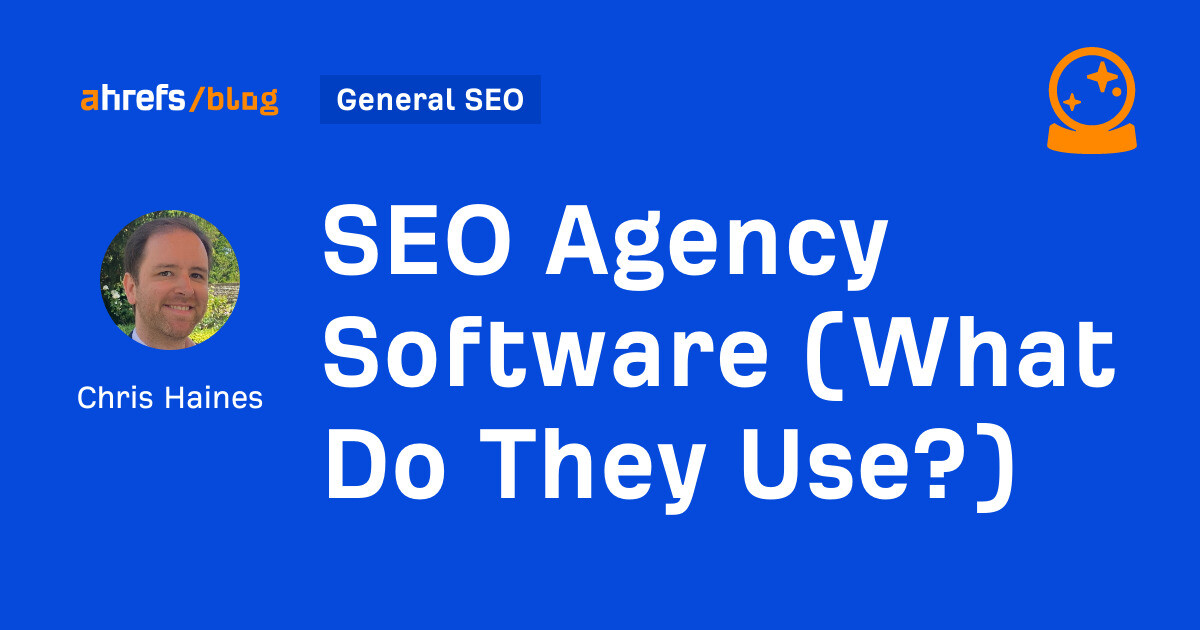
Here’s my selection of the software that SEO agencies use to get their work done and manage their teams successfully.
Accurate data is important for SEO agencies to make good decisions. As a result, every agency I’ve worked for over the past 10 years has had access to Ahrefs.
So when it comes to providing specific SEO services for clients, it mostly comes down to using the different Ahrefs tools.
Keyword research
Most agencies use Google Keyword Planner (GKP) or a tool like Ahrefs’ Keywords Explorer to do their keyword research.
GKP used to be considered the most accurate keyword tool because the data came from Google. These days, however, it’s probably not true.
Here’s why.
Firstly, GKP no longer shows exact search volumes—it only shows a range.
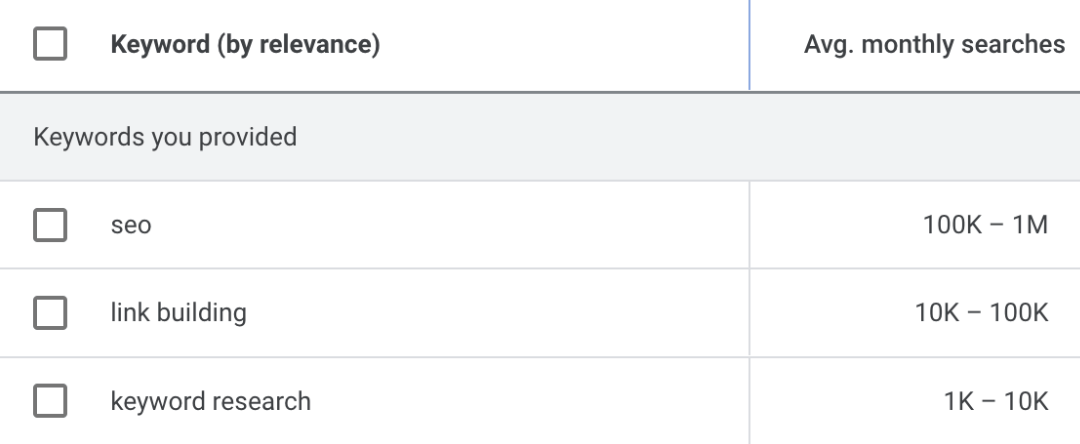
Whereas, Ahrefs gives a more definitive answer in terms of volume, which is more helpful for agencies planning an SEO campaign.
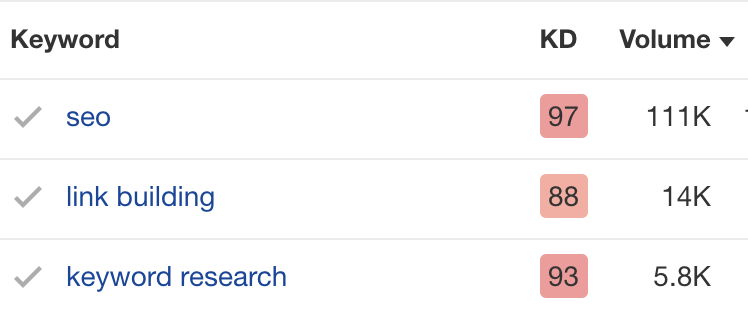
Secondly, Ahrefs CMO Tim Soulo’s GKP study suggested that GKP data is overestimated.
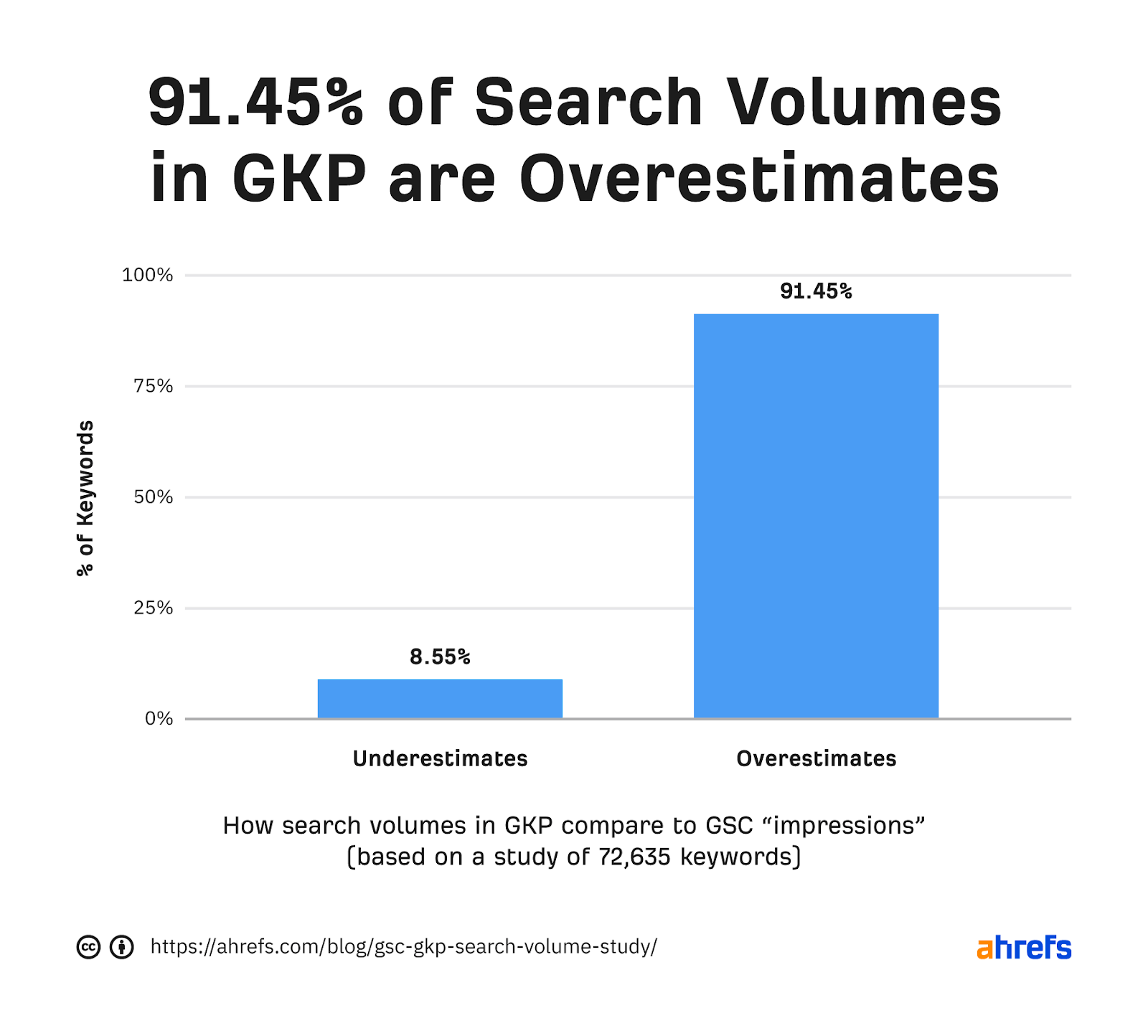
It’s why many agencies have switched to third-party tools like Ahrefs’ Keywords Explorer to do their keyword research.
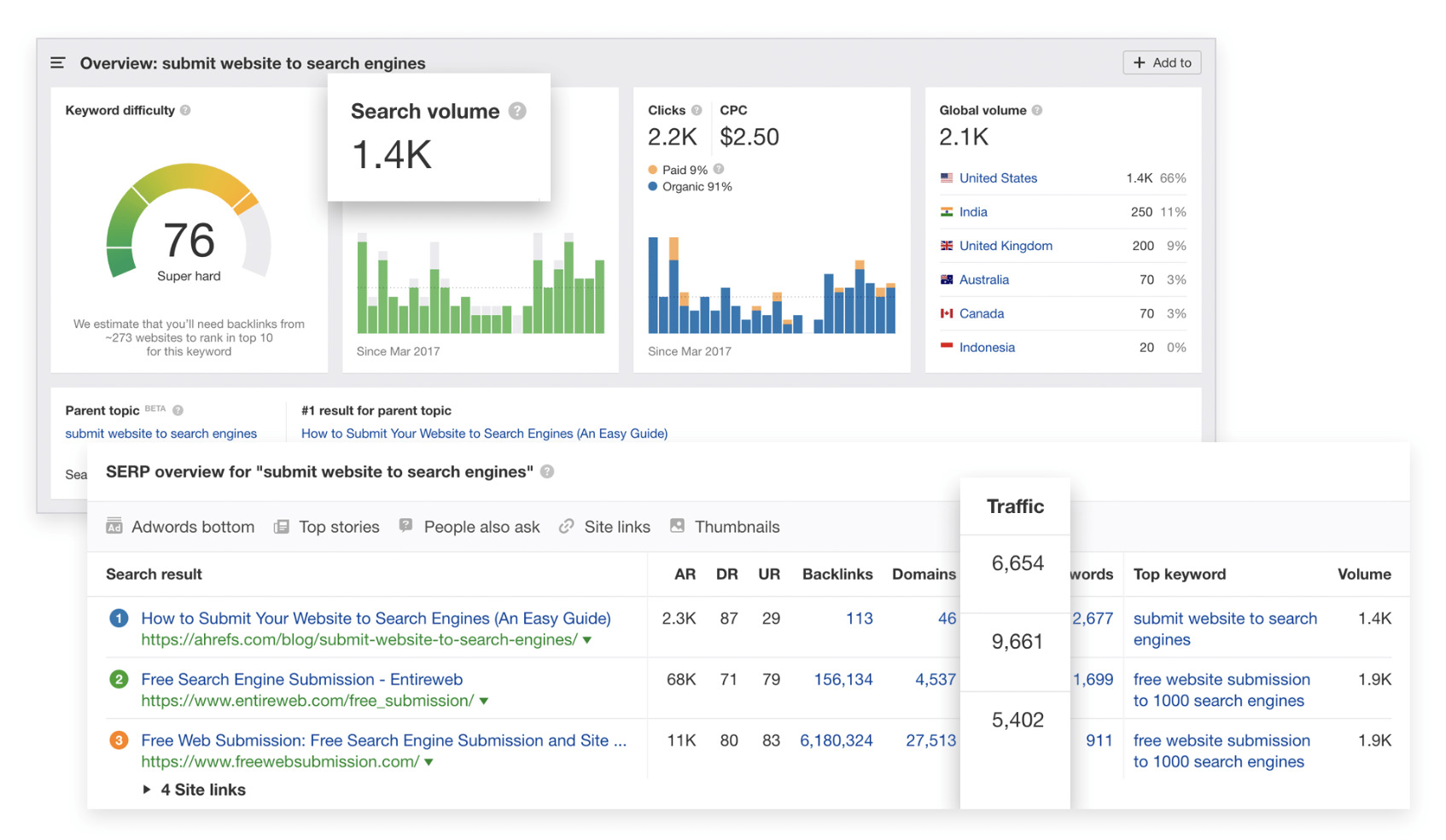
Generally speaking, tools like this can provide a helpful representation of what’s happening in the search results.
Competitor analysis
Each agency has its methods for completing a competitor analysis. But there is one common denominator that most agencies will agree on—speed.
With multiple clients contacting you at all times during the working day, agency workers must understand a competitor’s SEO strategy. They then need to share it at a moment’s notice with the client.
To get a bird’s-eye view of the competitor landscape, you can use a tool like Ahrefs’ Site Explorer.
Simply plug a domain into Site Explorer and head to the Organic competitors report.
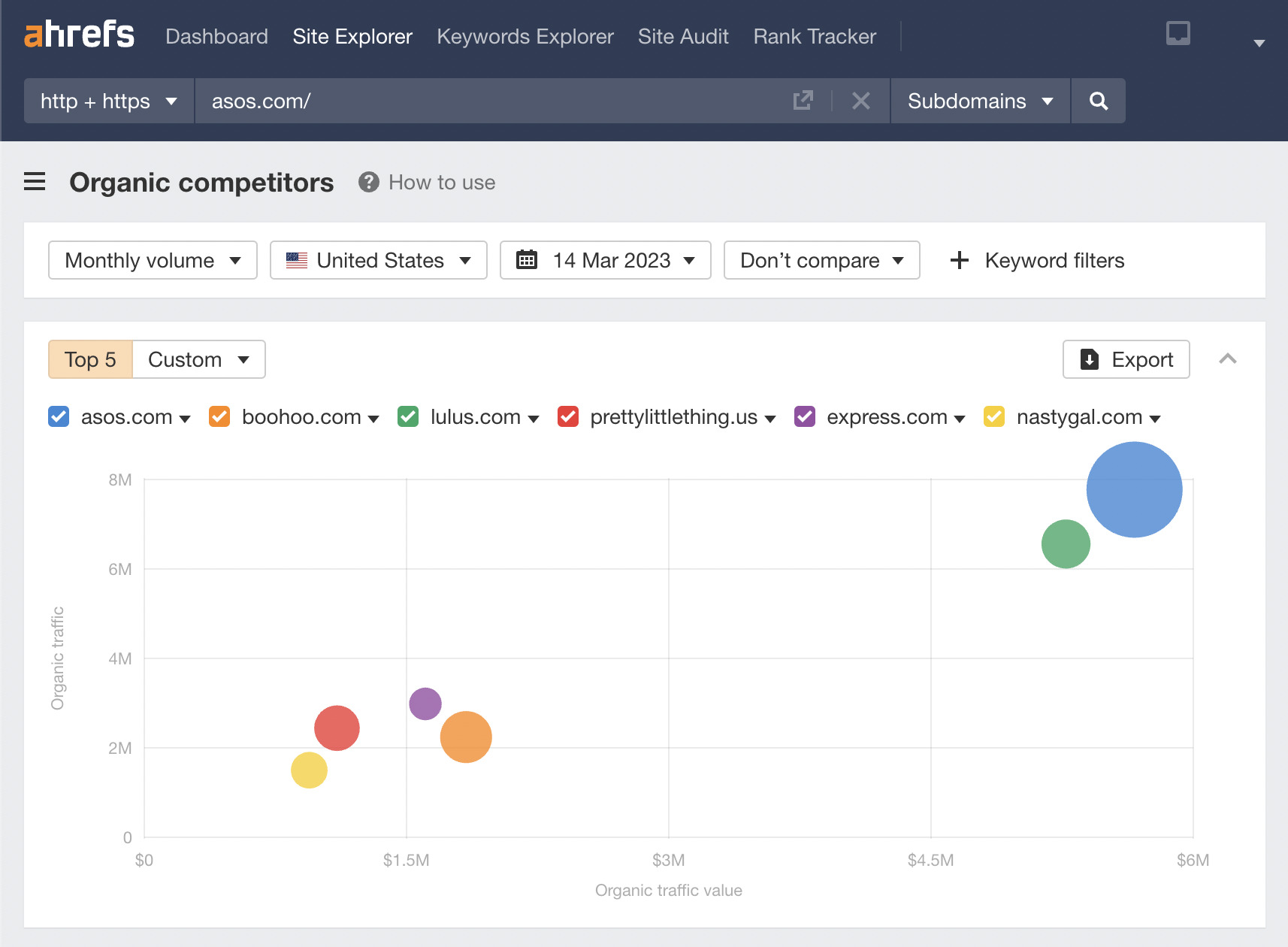
This tool lets you quickly identify the top five organic competitors for the domain entered and shows you their value plotted against their traffic.
Once you’ve identified your top competitors, you can analyze them further by scrolling down to the Top competing domains report to get into the details.
Another quick method to analyze your competitors’ websites is to use Ahrefs’ SEO Toolbar to get an overview of each competitor and jot a few notes down about each site.
Here’s an example of me looking at the Nasty Gal homepage using the toolbar.
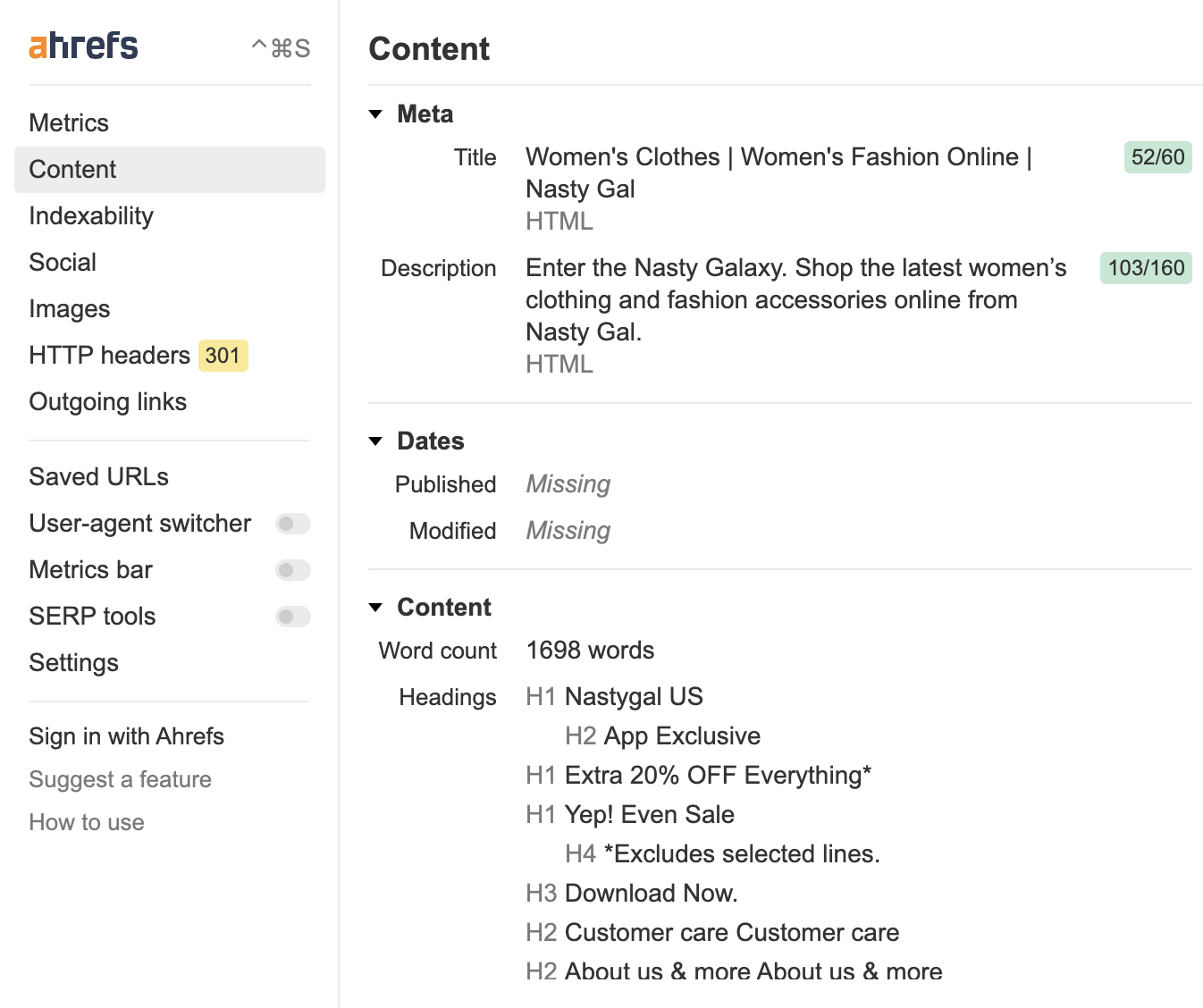
From here, you can understand the state of the competitor’s SEO and also use Site Explorer and Keywords Explorer to dig deeper into the details.
Once the agency has enough information about the competitors, it’ll typically present its findings in a PowerPoint format.
Rank tracking
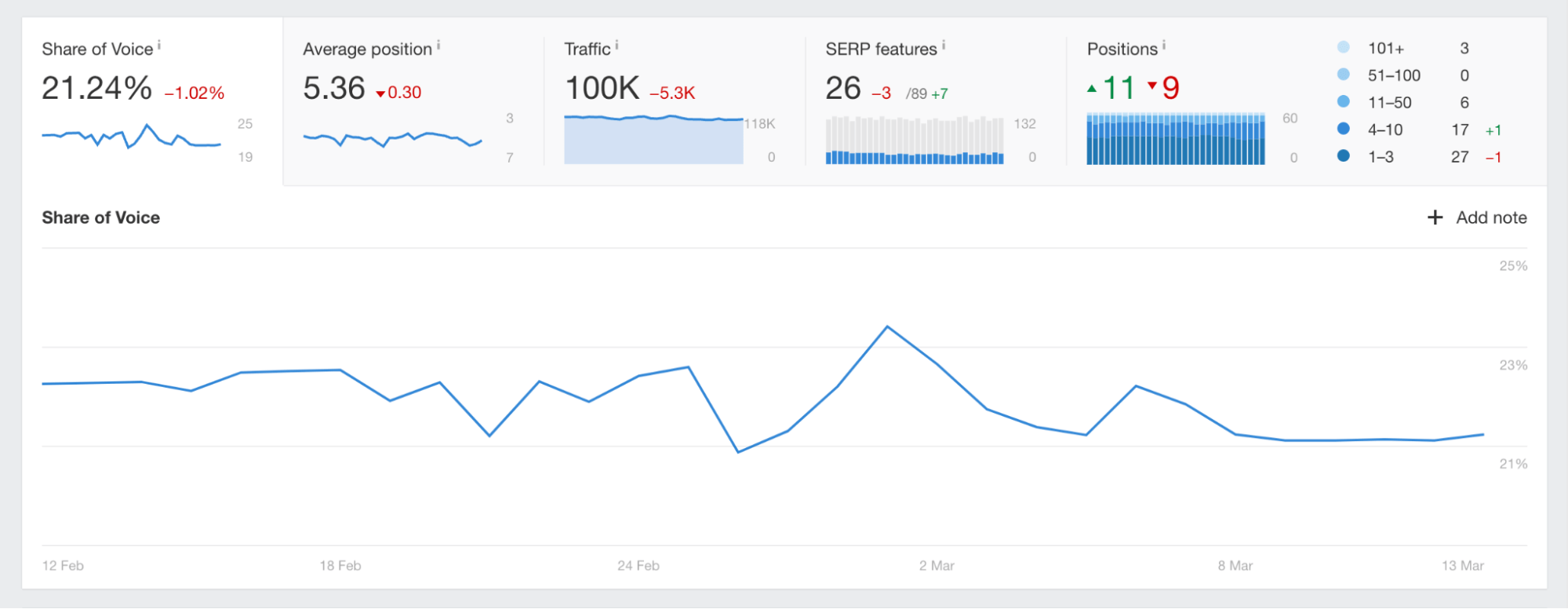
SEO agencies also need to prove results, and the primary way they do this is by tracking a client’s keywords and Google rankings.
This often means tracking hundreds or even thousands of keywords and organizing them logically. But how can you do this?
You’ll need to use a software tool like Ahrefs’ Rank Tracker to do it effectively.
Rank Tracker can help you monitor several key performance indicators, such as:
- Share of voice
- Average position
- Organic traffic
- SERP features
- Positions
Monitoring these data points helps you understand the impact of any Google updates as well as the performance of your website.
SEO audits and SEO proposals
Most agencies audit a prospective client’s site before working with them, so they can show the client what SEO issues are on the website and suggest fixes.
Although you can manually audit their site, it isn’t an efficient use of time.
Therefore, many agencies use a tool like Ahrefs’ Site Audit to quickly get to the core of a website’s SEO issues.

Here’s an example of the types of issues the tool can find:
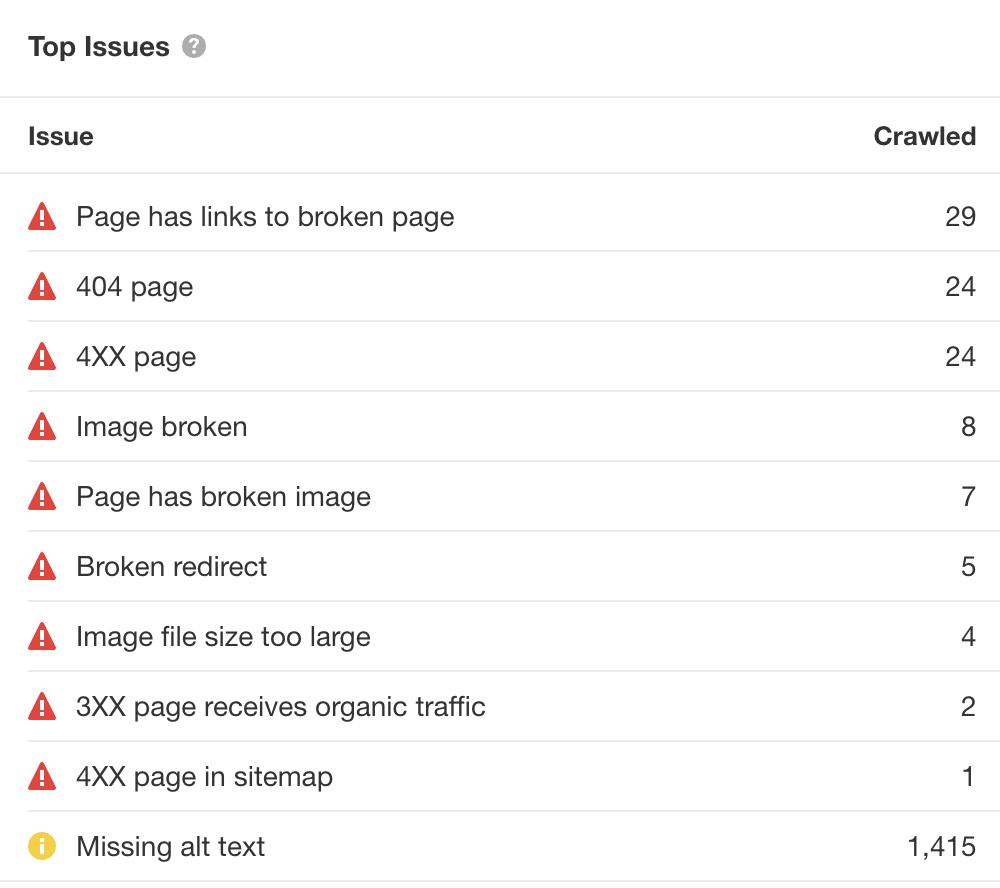
This type of technical analysis overview is a good starting point for fixing the issues on your client’s website.
Link building
When it comes to link building, agencies usually focus on creating a stand-out piece of content for a client that will help them acquire links naturally.
This content could be new research, a survey, or anything else the agency feels would accrue links over time.
Once it has made the content, it starts the outreach process—to spread awareness of the work.
To contact the relevant websites, it will typically use one of two tools:
- BuzzStream – The first outreach tool I used in my agency career. It covers link prospecting, creating custom email templates, organizing contacts, and managing the outreach process.
- Pitchbox – A popular alternative to BuzzStream that has testimonials from several well-known SEOs. Features are tailored toward agencies.
An SEO professional’s main objective is to rank websites in Google search, so it’s natural they’ll use several Google software products to understand their performance in the search engine.
Here’s my rundown of the top Google software SEO agencies typically use:
Google Analytics
Google Analytics (GA) is relatively ubiquitous in the agency-client world.
It’s usually the first place SEO agencies go to when they want to gauge the amount of traffic their clients’ websites have.
Google Search Console
Google Search Console is another popular tool SEOs in agencies use to gauge performance.
It allows you to:
- View how often your site appears in Google Search and which search queries it shows for, and how often searchers click through for those queries.
- Get a breakdown of websites that link to your site.
- See if Google can find and crawl your site.
- Fix indexing problems and request reindexing of new or updated content.
- Receive alerts when Google encounters issues on your site.
Google Looker Studio (formerly known as Google Data Studio)
Like rank tracking, reporting on the progress of your SEO campaign is important for agencies of all sizes.
Tools like Google Looker Studio (GLS) allow them to do several things:
- Aggregate multiple data sets – GA, GSC, and Ahrefs data can be integrated into one dashboard.
- Create scheduled reports – Schedule PDF reports to be sent to them and other stakeholders.
Check out our Data Studio documentation for more information on setting up the Ahrefs integration.
Google Trends
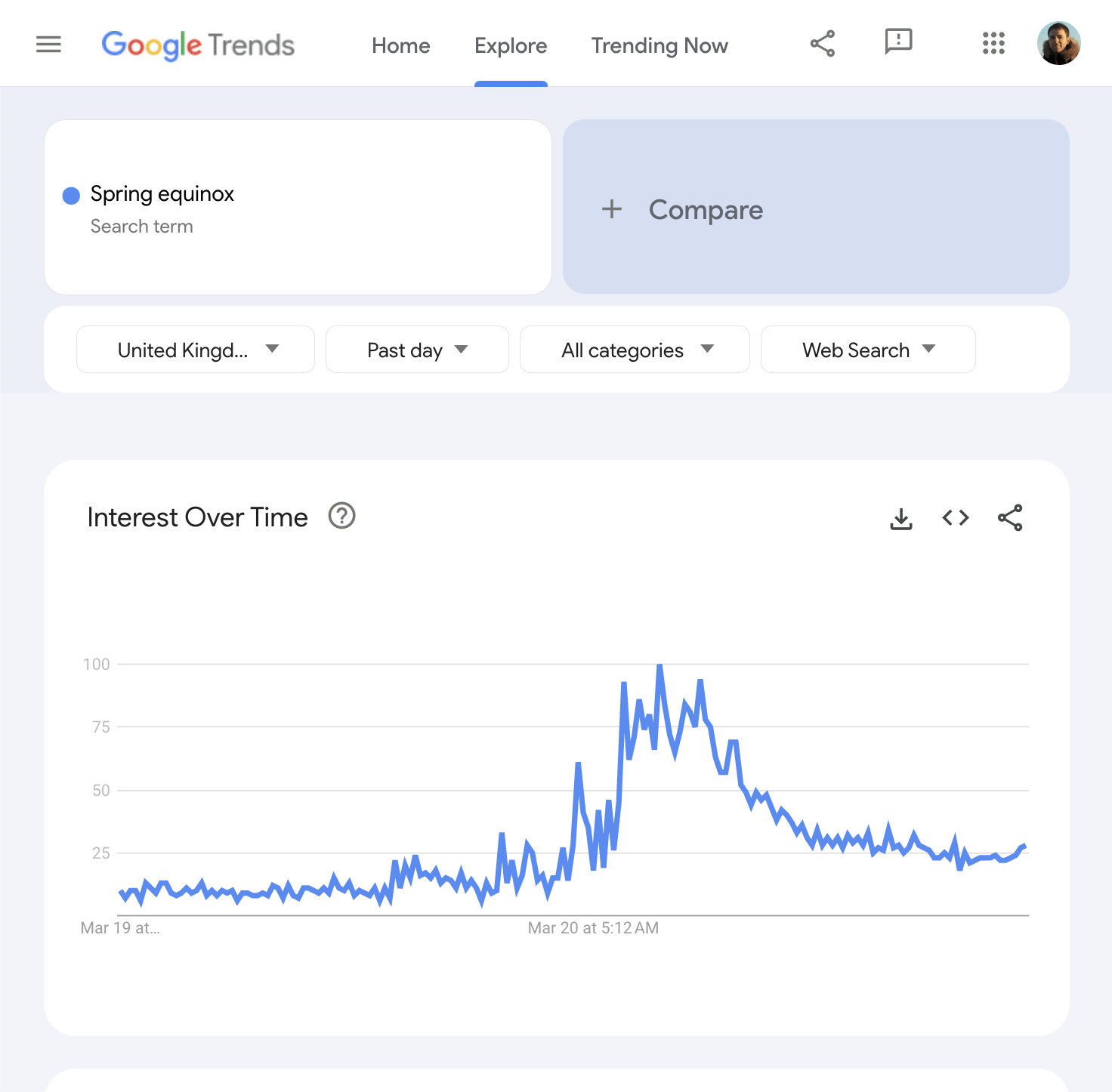
Every keyword you search for in Google has a search trend. Agencies will spot-check these trends by typing them into Google Trends. It helps to give an idea of whether a keyword is worth targeting.
Agencies use Google Trends to visualize specific keywords’ rising or diminishing popularity.
Google Colaboratory

Google Colaboratory (Collab) is one of the tools that SEOs use to run Python scripts.
Although you can run Python code in different ways, getting sign-off to run Python on your work laptop is often more trouble than it’s worth.
Using a third-party tool like Collab enables you to bypass this restriction (in most cases) and run your favorite Python scripts, increasing your efficiency and automating the mundane.
Google PageSpeed Insights
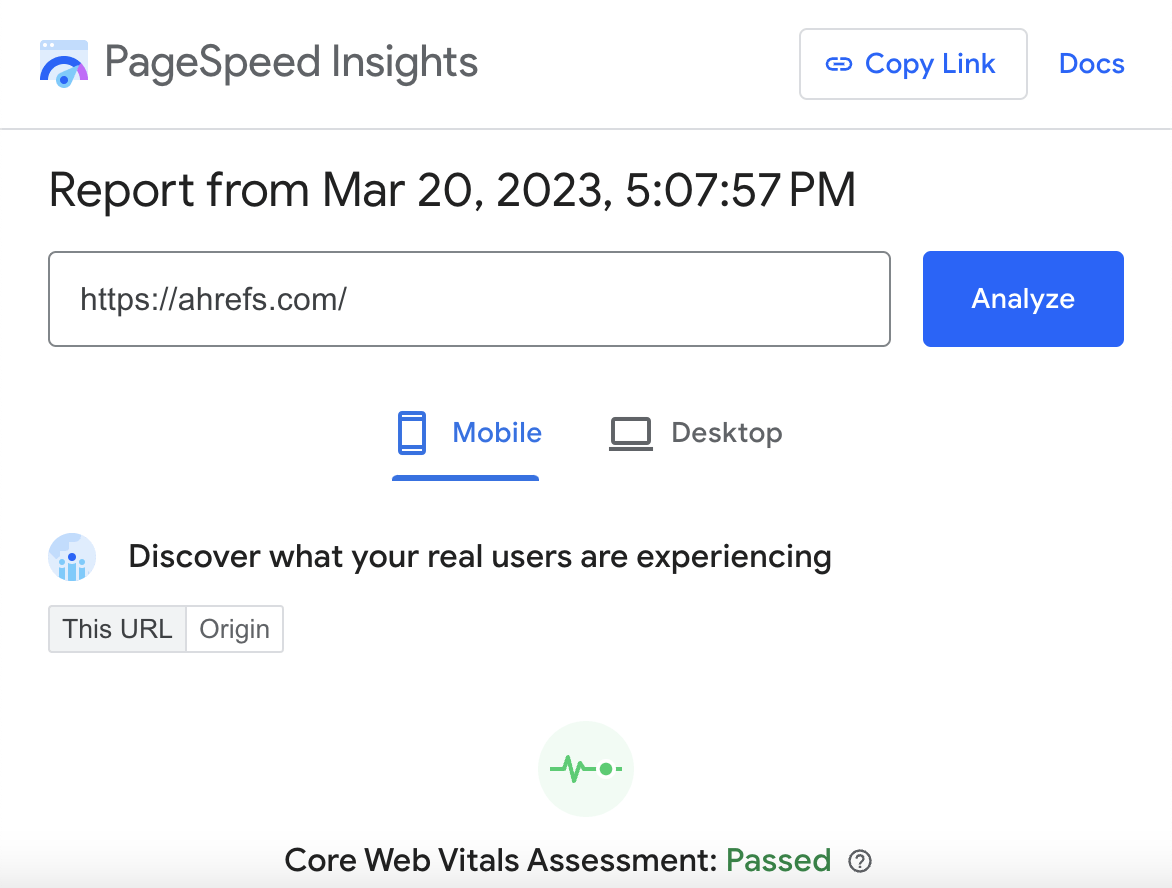
Site speed has been a hot topic for a few years now. Google estimated that for every one-second delay in mobile page load, conversions could fall up to 20%.
One of the tools agency SEOs use to measure page speed and Core Web Vitals is Google PageSpeed Insights.
There are other tools agencies use, such as:
- Webpagetest.org – Great for comparing site speed vs. competitors’.
- GTmetrix – Good all-around tool for checking site speed.
With so many SEO Chrome extensions, it’s hard to know which ones to use. These are the extensions most shared in agencies I’ve worked in.
It may seem unconventional that agencies use free Chrome extensions, but it comes back to speed.
These types of extensions help you to identify issues quickly. You can always return to the issues later for further analysis if needed.
Chrome DevTools
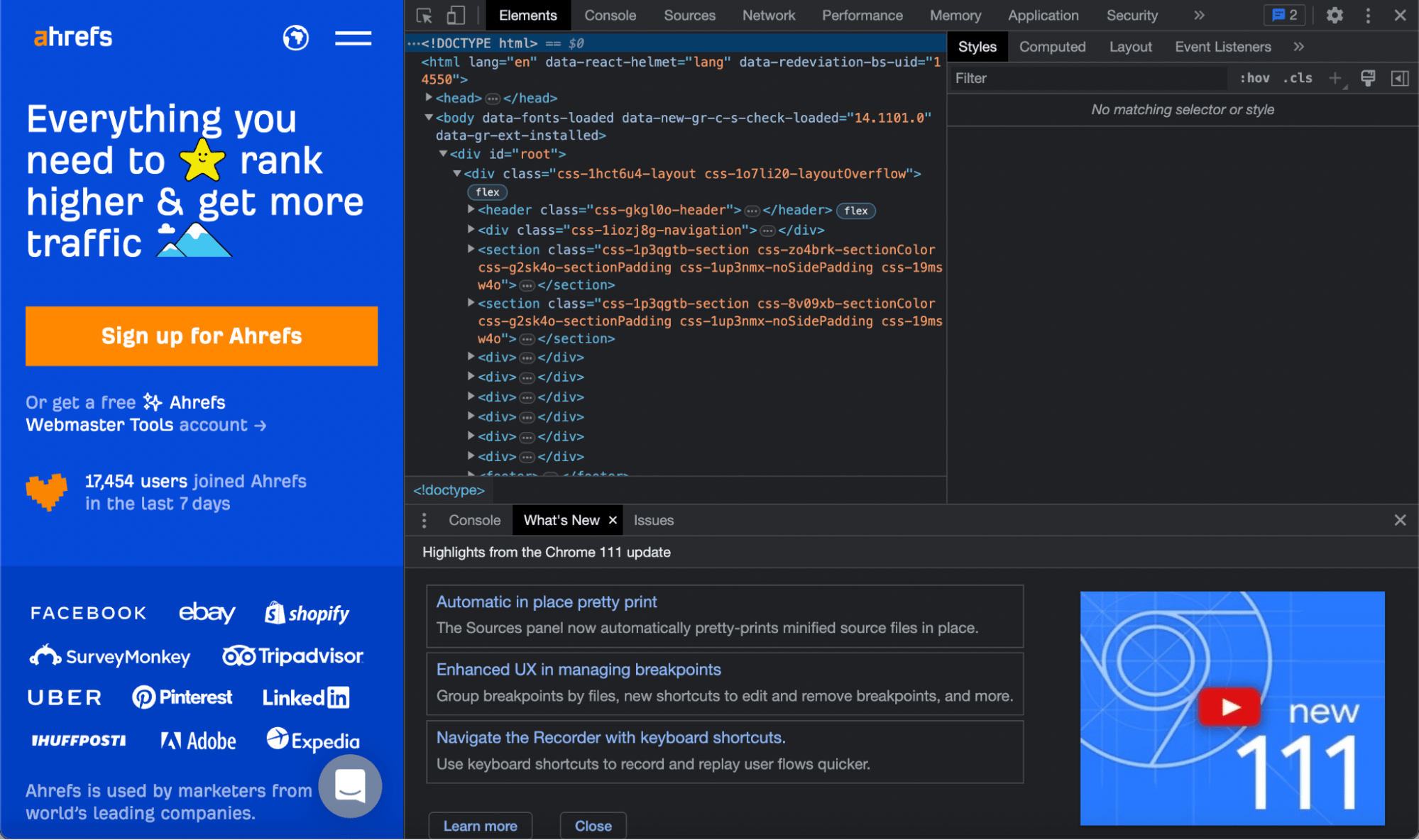
Chrome DevTools is another useful tool for most agency SEOs that’s worth taking a look at.
Although extensions, plugins, and software can help you spot-check the data quickly, you need to go into the code to understand what is happening. This is where Chrome DevTools can be really useful.
As agencies use various tools, they often dream of simplifying their tool setups into one single platform. Several “middle-ware” solutions can help you achieve this:
Supermetrics
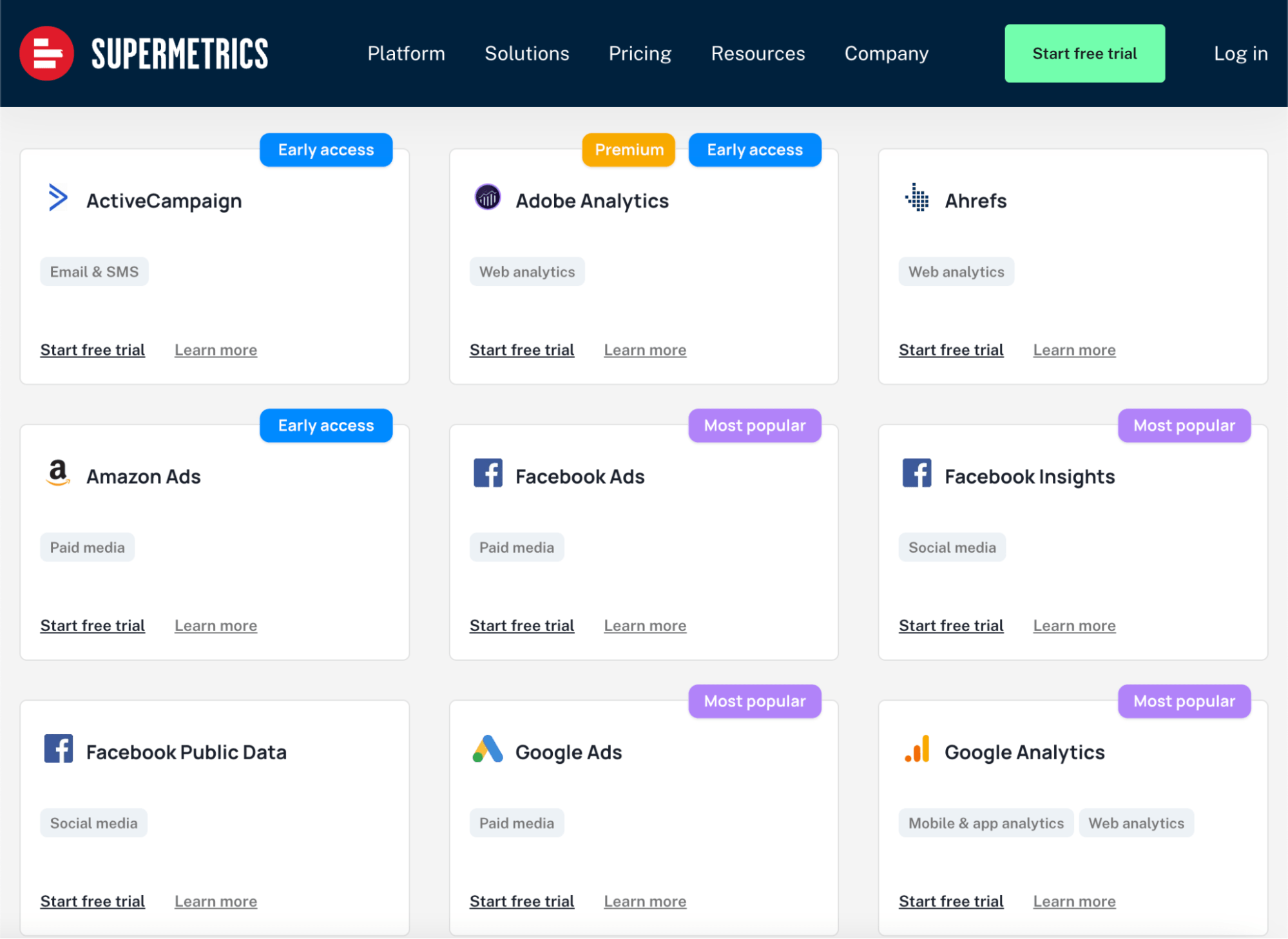
Supermetrics is a paid software tool that allows you to integrate data from 100+ platforms together. This enables you to increase your agency’s efficiency—specifically with SEO reporting.
Zapier
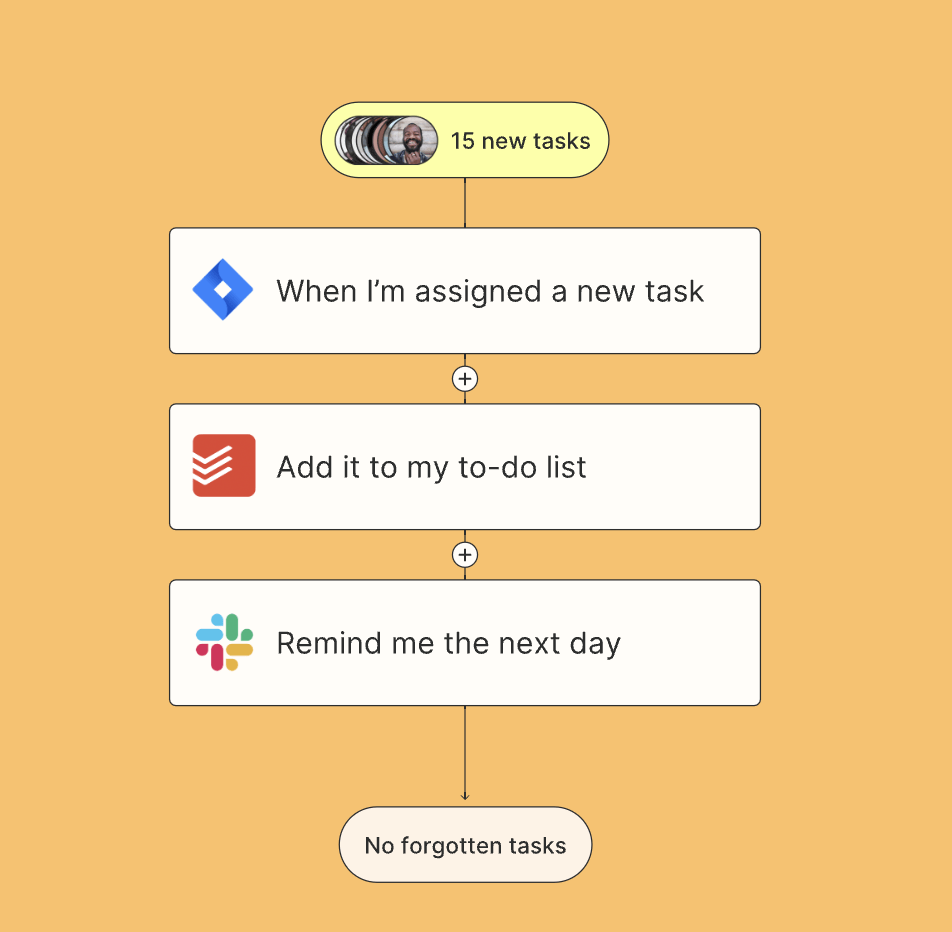
Zapier is another useful tool that automates interactions between different software tools.
This is particularly useful for automating repetitive tasks. Another benefit is that it is a no-code tool, so you don’t need any development experience to set up the automation.
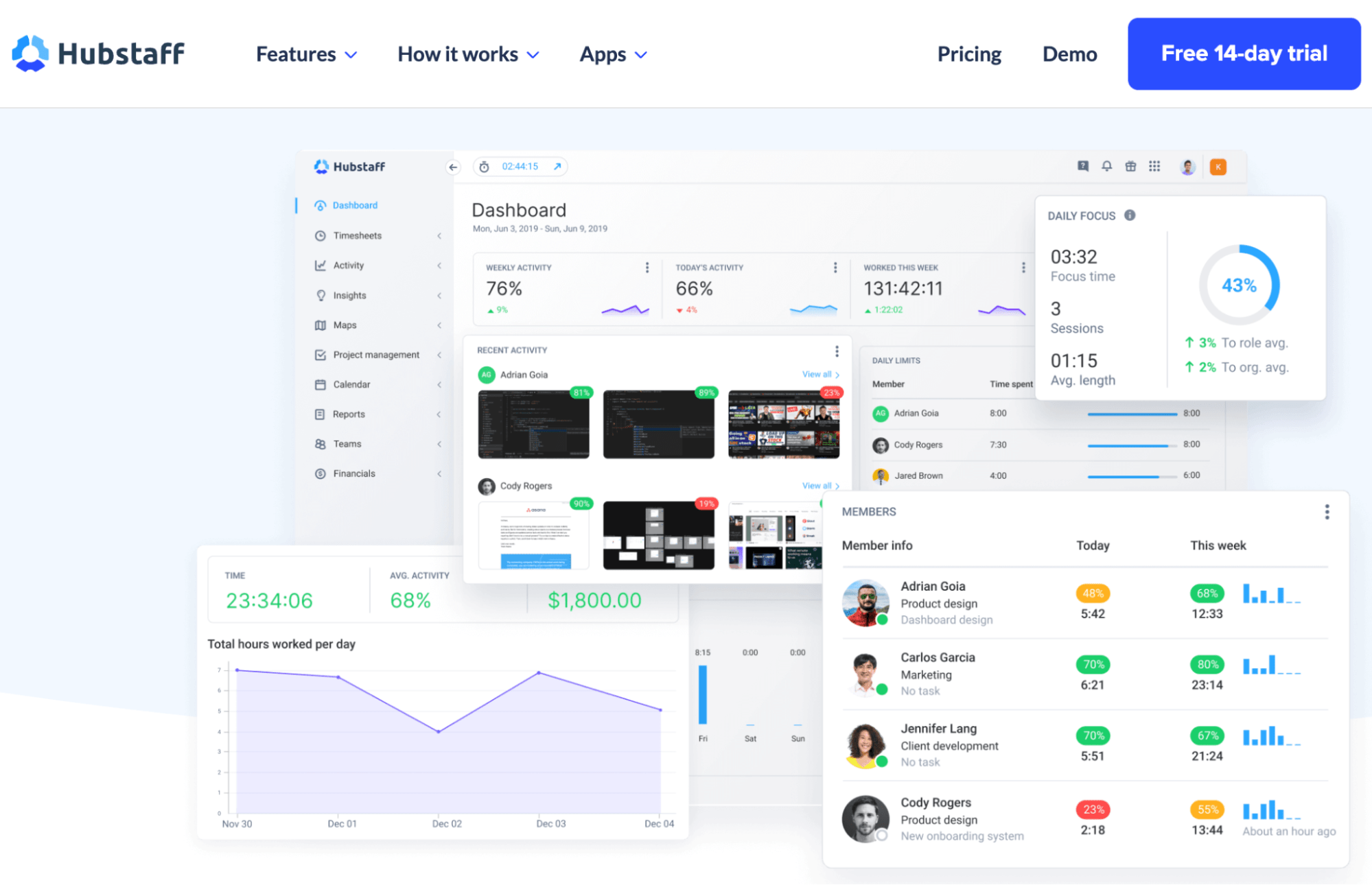
As an SEO agency, you and your team must keep track of your time.
Every agency I’ve worked at has used a different time-tracking tool, and there doesn’t seem to be much consensus on which is the “best one.”
So here are a few examples of time-tracking software I’ve used in agencies:
- Hubstaff – A great all-around time-tracking system.
- Toggl – Popular with smaller agencies.
- Timeneye – A simple and easy-to-use time tracker.
- SAP – Comprehensive time-tracking solution.
The most efficient SEO teams will have their methods to organize and distribute tasks among their team members.
Although you can do this in a humble spreadsheet, software tools can help.
All of the below are great, and I have seen them used in agencies effectively.
- Trello – Basic Kanban board functionality with simple and effective project management.
- ClickUp – Useful to keep your team on track with progress and break down tasks.
- Monday – Easy-to-use task management tool with no-code automation built in.
- Confluence – Team workspace useful for agencies working with clients to track progress on shared goals.
- Basecamp – One of the easiest-to-use task management platforms around.
SEO agencies have lots of clients, and the reality is they will all have their preferred method of getting in contact with you.
Microsoft Teams

When it comes to remote meetings, Microsoft Teams is the de facto standard for SEO agencies in terms of client-agency communication.
This is because signing off on a Microsoft product with the IT department in most agencies is generally much easier.

The most used software suite by far for agency SEOs is Microsoft Office (now known as Microsoft 365).
Yes—it’s not the most exciting piece of software. But it’s been a constant presence throughout my agency career.
The key products SEO agencies use in Microsoft 365 are:
- Microsoft Outlook – Send and receive emails.
- Microsoft Excel – Analyze data from your SEO campaigns.
- Microsoft Word – Prepare documents for your SEO campaigns.
- Microsoft PowerPoint – Create presentations, reports, and pitch decks for your clients or prospective clients.
If you are working with clients, they’ll expect you to have access to this software.
Sidenote.
Google offers software that mirrors the functionality of Microsoft 365 for free. There is nothing wrong with the Google software option. But on the whole, agencies still prefer to use Microsoft 365.
Working with freelancers in an agency setting is becoming more common. You can manage them through day-to-day task management and existing HR tools, but some agencies prefer to keep them separate.
If you are working with freelancers at scale, you may need a platform to manage them.
Lano
Tools like Lano enable you to manage freelancers, e.g., allowing you to pay your remote contractors easily.
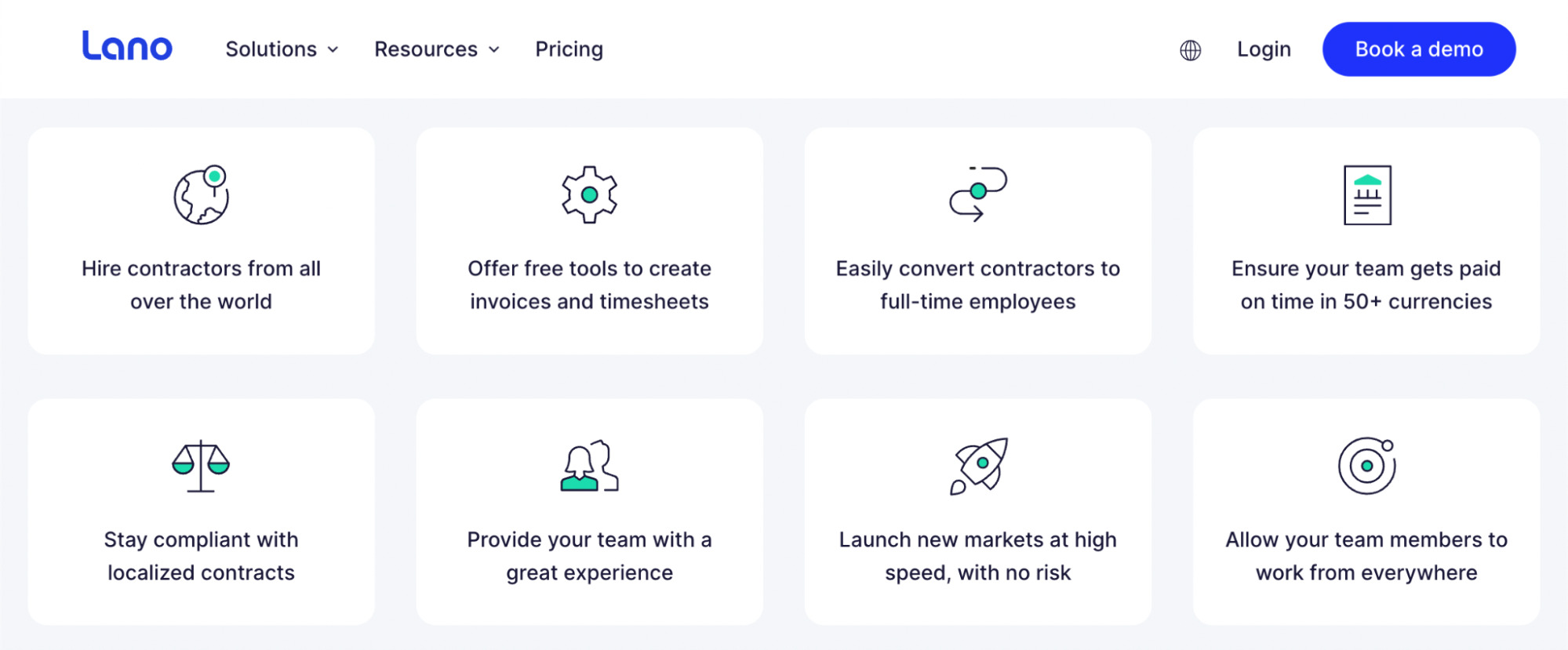
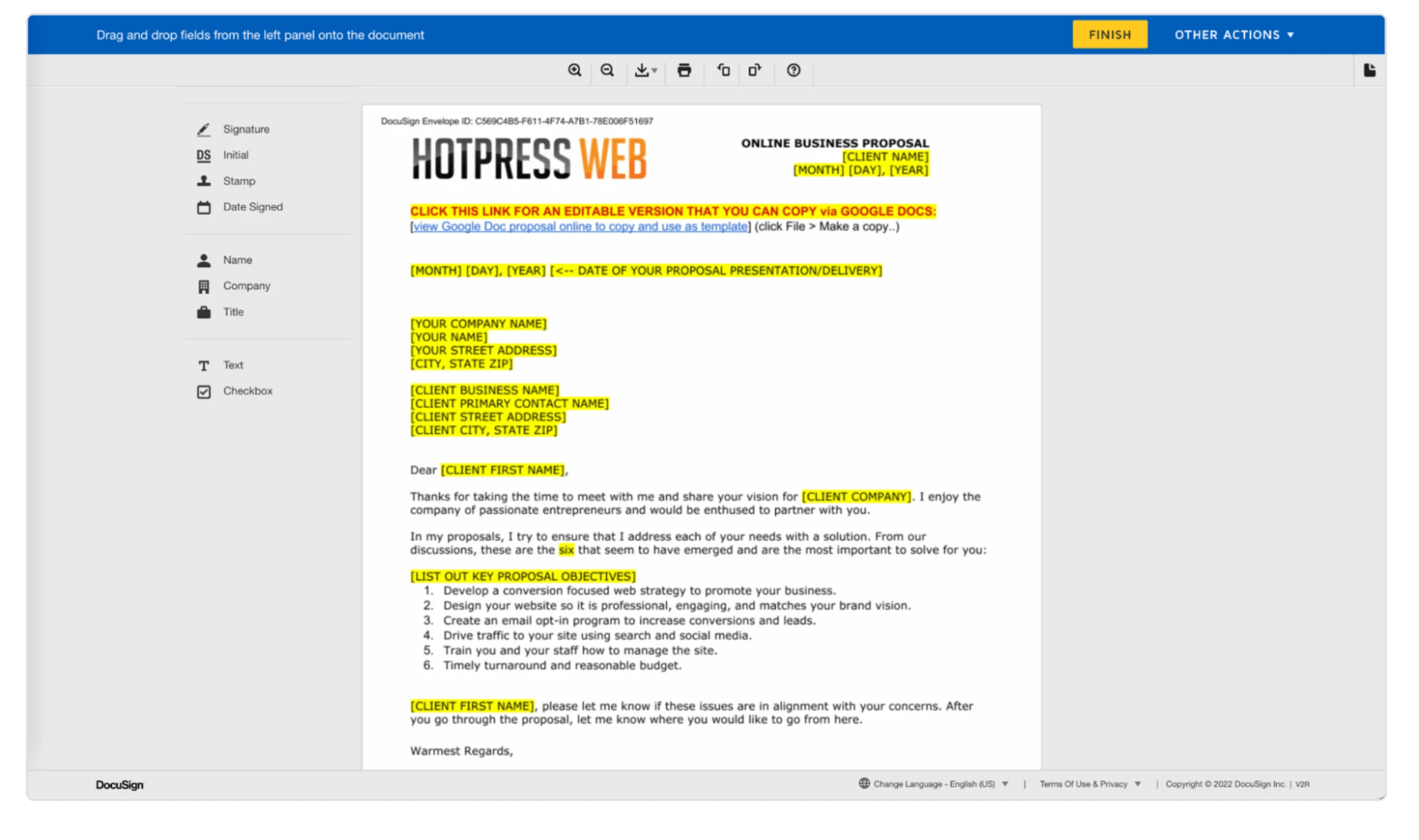
Once your agency has won a new client, you must create a contract and set a recurring billing schedule.
Here’s how agencies of different sizes approach it:
Many of the larger agencies will use purchase orders (POs). In the past, I’ve used tools such as Mediaocean’s Prisma to book these in.
For smaller agencies, it’s more likely they’ll use something like DocuSign or Stripe, but every agency will have its preferred methods.
Final thoughts
Access to the best software is vital for agencies; without this, they can’t advise their clients effectively and efficiently.
Got questions? Ping me on Twitter 🙂
SEO
Google On Hyphens In Domain Names

Google’s John Mueller answered a question on Reddit about why people don’t use hyphens with domains and if there was something to be concerned about that they were missing.
Domain Names With Hyphens For SEO
I’ve been working online for 25 years and I remember when using hyphens in domains was something that affiliates did for SEO when Google was still influenced by keywords in the domain, URL, and basically keywords anywhere on the webpage. It wasn’t something that everyone did, it was mainly something that was popular with some affiliate marketers.
Another reason for choosing domain names with keywords in them was that site visitors tended to convert at a higher rate because the keywords essentially prequalified the site visitor. I know from experience how useful two-keyword domains (and one word domain names) are for conversions, as long as they didn’t have hyphens in them.
A consideration that caused hyphenated domain names to fall out of favor is that they have an untrustworthy appearance and that can work against conversion rates because trustworthiness is an important factor for conversions.
Lastly, hyphenated domain names look tacky. Why go with tacky when a brandable domain is easier for building trust and conversions?
Domain Name Question Asked On Reddit
This is the question asked on Reddit:
“Why don’t people use a lot of domains with hyphens? Is there something concerning about it? I understand when you tell it out loud people make miss hyphen in search.”
And this is Mueller’s response:
“It used to be that domain names with a lot of hyphens were considered (by users? or by SEOs assuming users would? it’s been a while) to be less serious – since they could imply that you weren’t able to get the domain name with fewer hyphens. Nowadays there are a lot of top-level-domains so it’s less of a thing.
My main recommendation is to pick something for the long run (assuming that’s what you’re aiming for), and not to be overly keyword focused (because life is too short to box yourself into a corner – make good things, course-correct over time, don’t let a domain-name limit what you do online). The web is full of awkward, keyword-focused short-lived low-effort takes made for SEO — make something truly awesome that people will ask for by name. If that takes a hyphen in the name – go for it.”
Pick A Domain Name That Can Grow
Mueller is right about picking a domain name that won’t lock your site into one topic. When a site grows in popularity the natural growth path is to expand the range of topics the site coves. But that’s hard to do when the domain is locked into one rigid keyword phrase. That’s one of the downsides of picking a “Best + keyword + reviews” domain, too. Those domains can’t grow bigger and look tacky, too.
That’s why I’ve always recommended brandable domains that are memorable and encourage trust in some way.
Read the post on Reddit:
Read Mueller’s response here.
Featured Image by Shutterstock/Benny Marty
SEO
Reddit Post Ranks On Google In 5 Minutes

Google’s Danny Sullivan disputed the assertions made in a Reddit discussion that Google is showing a preference for Reddit in the search results. But a Redditor’s example proves that it’s possible for a Reddit post to rank in the top ten of the search results within minutes and to actually improve rankings to position #2 a week later.
Discussion About Google Showing Preference To Reddit
A Redditor (gronetwork) complained that Google is sending so many visitors to Reddit that the server is struggling with the load and shared an example that proved that it can only take minutes for a Reddit post to rank in the top ten.
That post was part of a 79 post Reddit thread where many in the r/SEO subreddit were complaining about Google allegedly giving too much preference to Reddit over legit sites.
The person who did the test (gronetwork) wrote:
“…The website is already cracking (server down, double posts, comments not showing) because there are too many visitors.
…It only takes few minutes (you can test it) for a post on Reddit to appear in the top ten results of Google with keywords related to the post’s title… (while I have to wait months for an article on my site to be referenced). Do the math, the whole world is going to spam here. The loop is completed.”
Reddit Post Ranked Within Minutes
Another Redditor asked if they had tested if it takes “a few minutes” to rank in the top ten and gronetwork answered that they had tested it with a post titled, Google SGE Review.
gronetwork posted:
“Yes, I have created for example a post named “Google SGE Review” previously. After less than 5 minutes it was ranked 8th for Google SGE Review (no quotes). Just after Washingtonpost.com, 6 authoritative SEO websites and Google.com’s overview page for SGE (Search Generative Experience). It is ranked third for SGE Review.”
It’s true, not only does that specific post (Google SGE Review) rank in the top 10, the post started out in position 8 and it actually improved ranking, currently listed beneath the number one result for the search query “SGE Review”.
Screenshot Of Reddit Post That Ranked Within Minutes
Anecdotes Versus Anecdotes
Okay, the above is just one anecdote. But it’s a heck of an anecdote because it proves that it’s possible for a Reddit post to rank within minutes and get stuck in the top of the search results over other possibly more authoritative websites.
hankschrader79 shared that Reddit posts outrank Toyota Tacoma forums for a phrase related to mods for that truck.
Google’s Danny Sullivan responded to that post and the entire discussion to dispute that Reddit is not always prioritized over other forums.
Danny wrote:
“Reddit is not always prioritized over other forums. [super vhs to mac adapter] I did this week, it goes Apple Support Community, MacRumors Forum and further down, there’s Reddit. I also did [kumo cloud not working setup 5ghz] recently (it’s a nightmare) and it was the Netgear community, the SmartThings Community, GreenBuildingAdvisor before Reddit. Related to that was [disable 5g airport] which has Apple Support Community above Reddit. [how to open an 8 track tape] — really, it was the YouTube videos that helped me most, but it’s the Tapeheads community that comes before Reddit.
In your example for [toyota tacoma], I don’t even get Reddit in the top results. I get Toyota, Car & Driver, Wikipedia, Toyota again, three YouTube videos from different creators (not Toyota), Edmunds, a Top Stories unit. No Reddit, which doesn’t really support the notion of always wanting to drive traffic just to Reddit.
If I guess at the more specific query you might have done, maybe [overland mods for toyota tacoma], I get a YouTube video first, then Reddit, then Tacoma World at third — not near the bottom. So yes, Reddit is higher for that query — but it’s not first. It’s also not always first. And sometimes, it’s not even showing at all.”
hankschrader79 conceded that they were generalizing when they wrote that Google always prioritized Reddit. But they also insisted that that didn’t diminish what they said is a fact that Google’s “prioritization” forum content has benefitted Reddit more than actual forums.
Why Is The Reddit Post Ranked So High?
It’s possible that Google “tested” that Reddit post in position 8 within minutes and that user interaction signals indicated to Google’s algorithms that users prefer to see that Reddit post. If that’s the case then it’s not a matter of Google showing preference to Reddit post but rather it’s users that are showing the preference and the algorithm is responding to those preferences.
Nevertheless, an argument can be made that user preferences for Reddit can be a manifestation of Familiarity Bias. Familiarity Bias is when people show a preference for things that are familiar to them. If a person is familiar with a brand because of all the advertising they were exposed to then they may show a bias for the brand products over unfamiliar brands.
Users who are familiar with Reddit may choose Reddit because they don’t know the other sites in the search results or because they have a bias that Google ranks spammy and optimized websites and feel safer reading Reddit.
Google may be picking up on those user interaction signals that indicate a preference and satisfaction with the Reddit results but those results may simply be biases and not an indication that Reddit is trustworthy and authoritative.
Is Reddit Benefiting From A Self-Reinforcing Feedback Loop?
It may very well be that Google’s decision to prioritize user generated content may have started a self-reinforcing pattern that draws users in to Reddit through the search results and because the answers seem plausible those users start to prefer Reddit results. When they’re exposed to more Reddit posts their familiarity bias kicks in and they start to show a preference for Reddit. So what could be happening is that the users and Google’s algorithm are creating a self-reinforcing feedback loop.
Is it possible that Google’s decision to show more user generated content has kicked off a cycle where more users are exposed to Reddit which then feeds back into Google’s algorithm which in turn increases Reddit visibility, regardless of lack of expertise and authoritativeness?
Featured Image by Shutterstock/Kues
SEO
WordPress Releases A Performance Plugin For “Near-Instant Load Times”

WordPress released an official plugin that adds support for a cutting edge technology called speculative loading that can help boost site performance and improve the user experience for site visitors.
Speculative Loading
Rendering means constructing the entire webpage so that it instantly displays (rendering). When your browser downloads the HTML, images, and other resources and puts it together into a webpage, that’s rendering. Prerendering is putting that webpage together (rendering it) in the background.
What this plugin does is to enable the browser to prerender the entire webpage that a user might navigate to next. The plugin does that by anticipating which webpage the user might navigate to based on where they are hovering.
Chrome lists a preference for only prerendering when there is an at least 80% probability of a user navigating to another webpage. The official Chrome support page for prerendering explains:
“Pages should only be prerendered when there is a high probability the page will be loaded by the user. This is why the Chrome address bar prerendering options only happen when there is such a high probability (greater than 80% of the time).
There is also a caveat in that same developer page that prerendering may not happen based on user settings, memory usage and other scenarios (more details below about how analytics handles prerendering).
The Speculative Loading API solves a problem that previous solutions could not because in the past they were simply prefetching resources like JavaScript and CSS but not actually prerendering the entire webpage.
The official WordPress announcement explains it like this:
Introducing the Speculation Rules API
The Speculation Rules API is a new web API that solves the above problems. It allows defining rules to dynamically prefetch and/or prerender URLs of certain structure based on user interaction, in JSON syntax—or in other words, speculatively preload those URLs before the navigation. This API can be used, for example, to prerender any links on a page whenever the user hovers over them.”
The official WordPress page about this new functionality describes it:
“The Speculation Rules API is a new web API… It allows defining rules to dynamically prefetch and/or prerender URLs of certain structure based on user interaction, in JSON syntax—or in other words, speculatively preload those URLs before the navigation.
This API can be used, for example, to prerender any links on a page whenever the user hovers over them. Also, with the Speculation Rules API, “prerender” actually means to prerender the entire page, including running JavaScript. This can lead to near-instant load times once the user clicks on the link as the page would have most likely already been loaded in its entirety. However that is only one of the possible configurations.”
The new WordPress plugin adds support for the Speculation Rules API. The Mozilla developer pages, a great resource for HTML technical understanding describes it like this:
“The Speculation Rules API is designed to improve performance for future navigations. It targets document URLs rather than specific resource files, and so makes sense for multi-page applications (MPAs) rather than single-page applications (SPAs).
The Speculation Rules API provides an alternative to the widely-available <link rel=”prefetch”> feature and is designed to supersede the Chrome-only deprecated <link rel=”prerender”> feature. It provides many improvements over these technologies, along with a more expressive, configurable syntax for specifying which documents should be prefetched or prerendered.”
See also: Are Websites Getting Faster? New Data Reveals Mixed Results
Performance Lab Plugin
The new plugin was developed by the official WordPress performance team which occasionally rolls out new plugins for users to test ahead of possible inclusion into the actual WordPress core. So it’s a good opportunity to be first to try out new performance technologies.
The new WordPress plugin is by default set to prerender “WordPress frontend URLs” which are pages, posts, and archive pages. How it works can be fine-tuned under the settings:
Settings > Reading > Speculative Loading
Browser Compatibility
The Speculative API is supported by Chrome 108 however the specific rules used by the new plugin require Chrome 121 or higher. Chrome 121 was released in early 2024.
Browsers that do not support will simply ignore the plugin and will have no effect on the user experience.
Check out the new Speculative Loading WordPress plugin developed by the official core WordPress performance team.
How Analytics Handles Prerendering
A WordPress developer commented with a question asking how Analytics would handle prerendering and someone else answered that it’s up to the Analytics provider to detect a prerender and not count it as a page load or site visit.
Fortunately both Google Analytics and Google Publisher Tags (GPT) both are able to handle prerenders. The Chrome developers support page has a note about how analytics handles prerendering:
“Google Analytics handles prerender by delaying until activation by default as of September 2023, and Google Publisher Tag (GPT) made a similar change to delay triggering advertisements until activation as of November 2023.”
Possible Conflict With Ad Blocker Extensions
There are a couple things to be aware of about this plugin, aside from the fact that it’s an experimental feature that requires Chrome 121 or higher.
A comment by a WordPress plugin developer that this feature may not work with browsers that are using the uBlock Origin ad blocking browser extension.
Download the plugin:
Speculative Loading Plugin by the WordPress Performance Team
Read the announcement at WordPress
Speculative Loading in WordPress
See also: WordPress, Wix & Squarespace Show Best CWV Rate Of Improvement
-

 WORDPRESS7 days ago
WORDPRESS7 days ago10 WordPress Influencers to Follow in 2024 – WordPress.com News
-

 SEARCHENGINES7 days ago
SEARCHENGINES7 days agoGoogle Image Search Adds Pixel Level Object Segmentation Animation
-

 MARKETING7 days ago
MARKETING7 days agoFeeling Stuck: What to Do When You Don’t Know What to Do
-

 PPC5 days ago
PPC5 days agoA History of Google AdWords and Google Ads: Revolutionizing Digital Advertising & Marketing Since 2000
-

 SEARCHENGINES6 days ago
SEARCHENGINES6 days agoMore Google March 2024 Core Update Ranking Volatility
-

 PPC6 days ago
PPC6 days agoCompetitor Monitoring: 7 ways to keep watch on the competition
-

 PPC5 days ago
PPC5 days ago31 Ready-to-Go Mother’s Day Messages for Social Media, Email, & More
-

 WORDPRESS6 days ago
WORDPRESS6 days agoThrive Architect vs Divi vs Elementor














